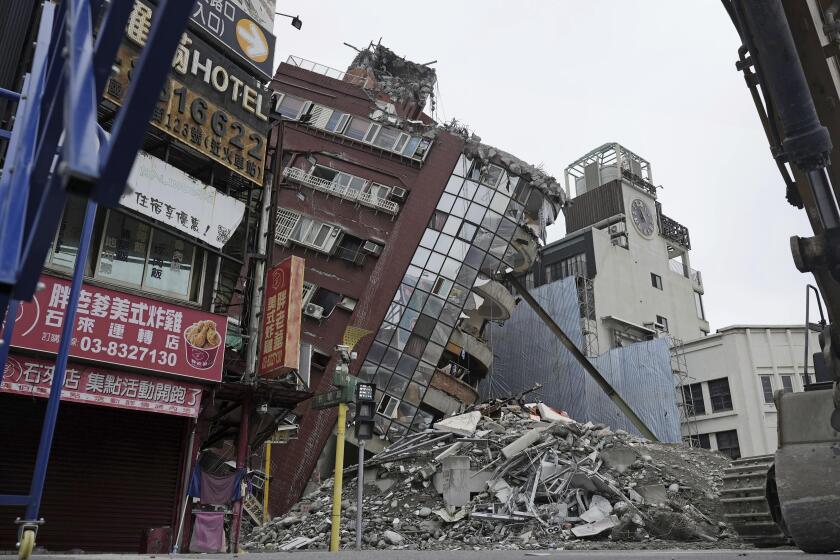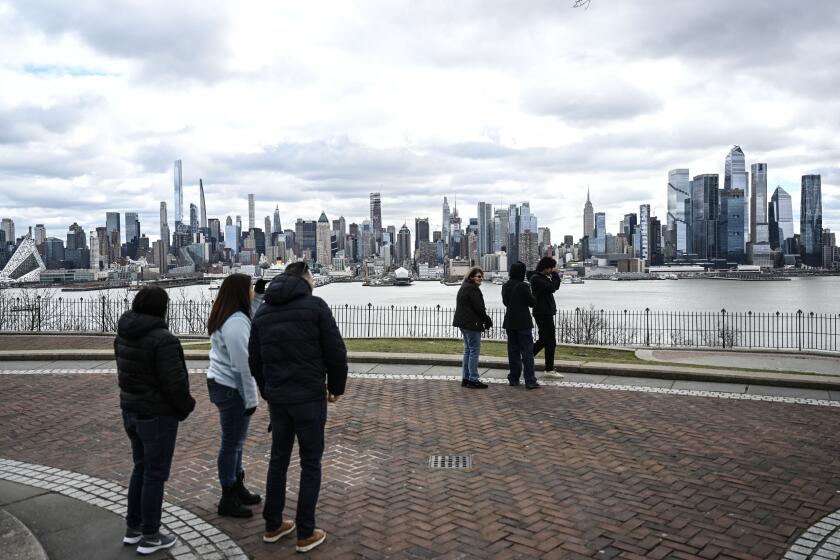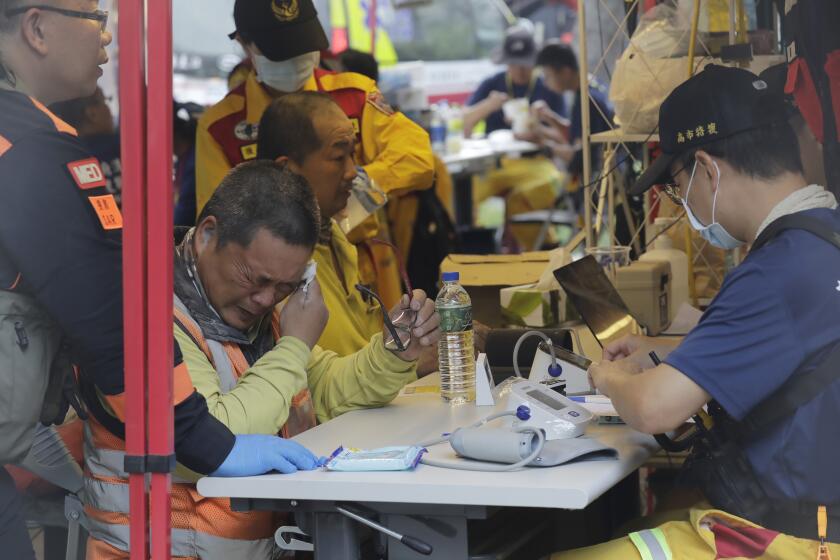Troops, police sent to stop post-quake looting in Peru
Authorities bolstered the troop and police presence Saturday in the earthquake-shattered zone south of Peru’s capital after a wave of looting targeted shops, relief vehicles and aid storage sites.
Hundreds of reinforcements were posted along highways and in the hard-hit cities of Chincha, Pisco and Ica. Three days after the devastating 8.0-magnitude quake struck, killing about 500 people and injuring 1,500, tens of thousands remained without even temporary housing or a regular supply of water and food. Much of the damaged area still lacks electricity and running water.
“We are going to establish order in an energetic fashion,” President Alan Garcia told Peruvian radio.
But the president stopped short of declaring martial law and attributed the heavily publicized looting to small groups of delinquents. He also blamed the media for blowing the problem out of proportion.
“Some people exaggerate, and that’s not good,” said Garcia, whose political future may be staked on the government’s response to the quake. “There is a sense of panic, of collective fear. But this is basically a psychological situation.”
Garcia’s popularity had been in a downward spiral before Wednesday’s catastrophe. He is keen to avert the kind of unfavorable reviews President Bush received for his handling of Hurricane Katrina two years ago.
But the reports of large-scale pillaging, combined with continuing protestations that aid is slow to arrive in the quake zone, have put Garcia on the defensive. Complaints are rising throughout the stricken zone that the tons of relief supplies and millions of dollars in foreign aid that have flooded into Peru are not getting to those who need it most.
Images of looters scampering off with water, fish, meat, diapers and other items have flooded the news, seemingly contradicting the government’s message that everything was under control. Supply depots with medicines and other help for quake victims were among the sites reported to have been looted.
“The vandals have come to steal,” Father Cesar Medina, a Roman Catholic priest helping to disburse aid in Ica, told the Peru 21 daily newspaper. “Until now I don’t see any sign of the police.”
In several cases, authorities were reported to have fired guns in the air to disperse looters.
The escape of more than 500 convicts from a damaged penitentiary in Chincha has added to security fears. Interior Minister Luis Alva Castro said many had been recaptured. Severe looting has been reported in the town.
News accounts here indicated that roving thieves were taking advantage of the region’s damaged highway system to assault aid vehicles.
In one case, authorities posted new police patrols on a badly damaged bridge on the Pan-American Highway near Pisco. The quake opened deep fissures in the road bed, forcing north- and southbound traffic to stop for long periods and then inch along in a single lane, giving thieves an opportunity to swoop in.
The pillaging was an indication of deep frustration and misery in the quake zone.
The coastal city of Pisco, home to 130,000 people, has been transformed into a chaotic, rubble-strewn refugee camp. As many as 70% of the buildings were destroyed, officials say.
Local news media reported Saturday that a 10-month-old boy was pulled from the ruins of San Clemente Catholic Church seven hours after it collapsed. “It was a miracle that he had survived so many hours breathing only dust and death,” Romulo Palomino, who discovered the infant, told the state news agency Andina.
Palomino brought the infant, whose parents have not been located or identified, to the nearby coastal town of Paracas, where he is being cared for, the Associated Press reported.
Some stunned residents of Pisco wear gauze masks against the dust raised by rescue operations and the stench of bodies decaying beneath the debris.
At night, people camp out with donated blankets in front of their obliterated dwellings, using wood from collapsed structures to make fires.
Survivors, who must rely on infrequent handouts and whatever else they can scrape up, have greeted visiting officials with jeers and cries that they have been abandoned.
With aid efforts concentrated in urban areas such as Pisco and Ica, rural residents who lost homes and loved ones in the temblor complain that they have been largely ignored.
“No one has been here to help us,” Trinidad Delgado, an ailing 70-year-old, said as she showed reporters her destroyed home in the village of Santa Rosa, just outside Pisco. “We’re sleeping outside, making fires to stay warm. We eat what little we can come up with. We need help.”
The government has stood by its actions.
“Those affected exaggerate when they say help doesn’t arrive,” President Garcia told reporters Saturday in Pisco. “It’s a negative sensation caused in part by the desperation produced by the disaster.”
The president and members of his Cabinet have spent much of their time since Wednesday in hard-hit areas, inspecting damage and vowing to help. But critics have accused the administration of greater showmanship than effectiveness, saying that some ministers would have been of more use working in the capital on problems of distribution and coordination.
“President Garcia committed a grave error in dispatching to Pisco his ministers with their cars and their bodyguards, with no plan, to end up isolated in that city,” said Carlos Bruce Montes de Oca, an opposition congressman.
Garcia and his team have said that aid is getting to where it is needed and that “no one will die of hunger or of thirst,” as he told a Peruvian radio station.
“The government is doing all it can to ensure that help arrives to everyone,” Garcia said. “I ask for a little patience.”
patrick.mcdonnell @latimes.com
Special correspondent Adriana León contributed to this report.
More to Read
Start your day right
Sign up for Essential California for news, features and recommendations from the L.A. Times and beyond in your inbox six days a week.
You may occasionally receive promotional content from the Los Angeles Times.






